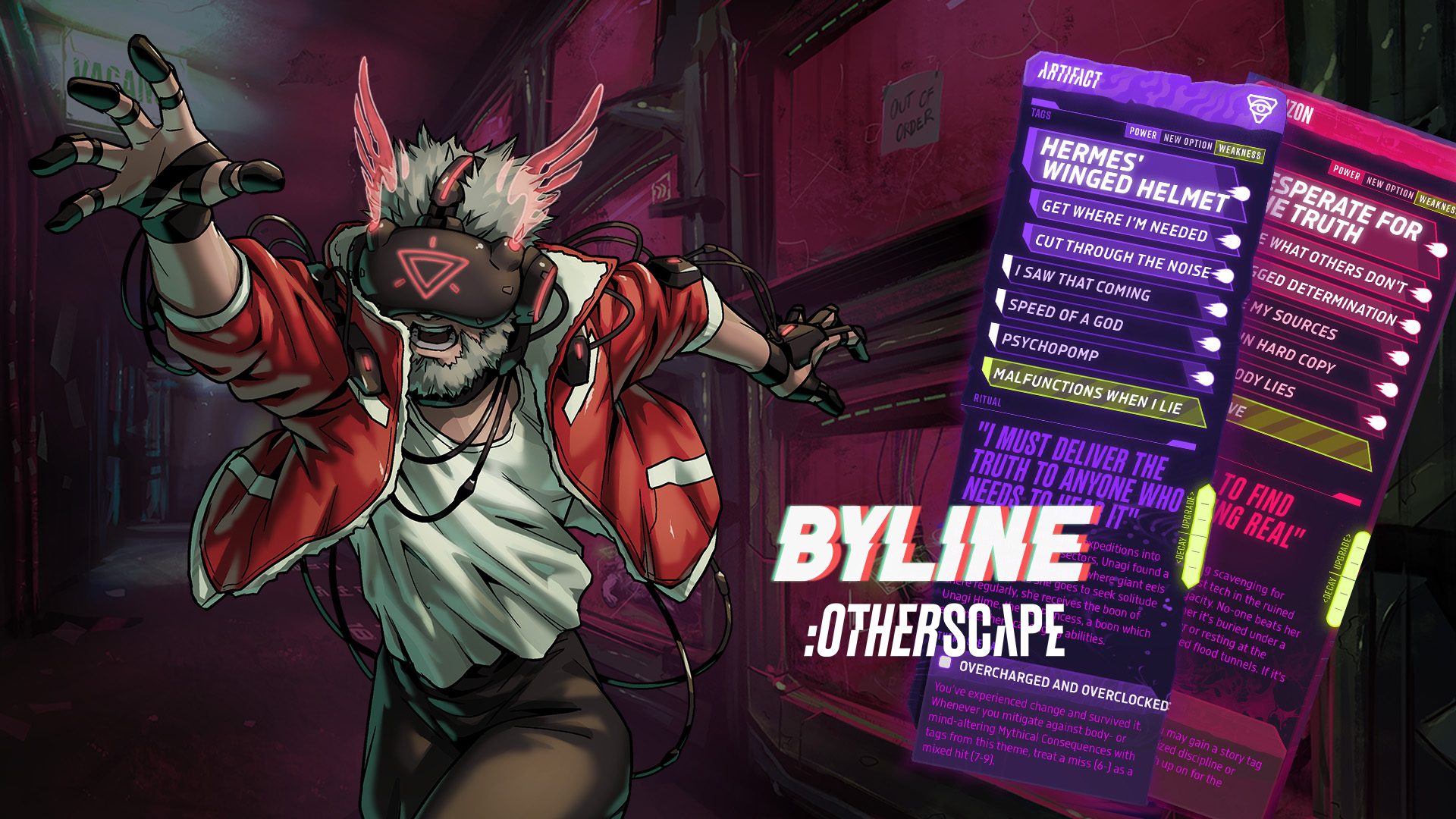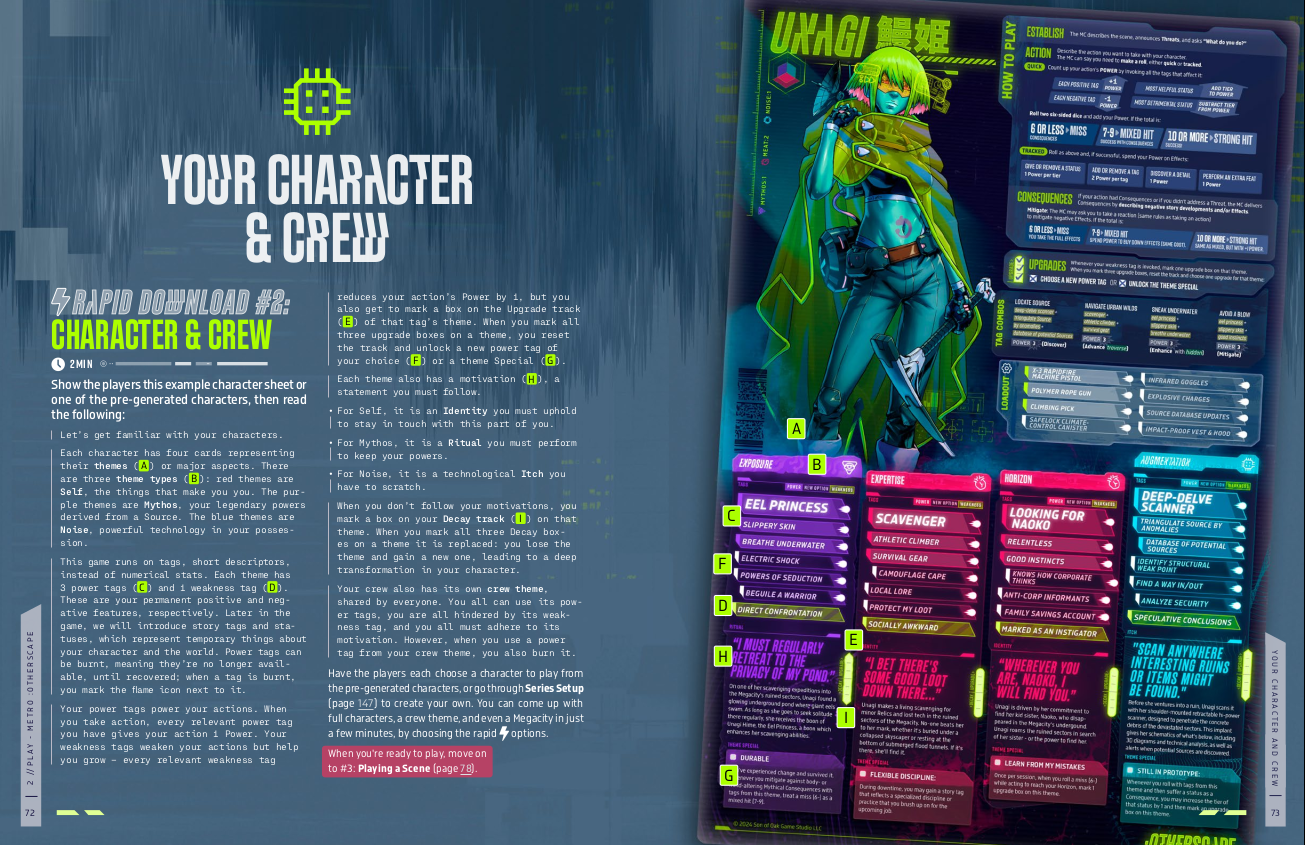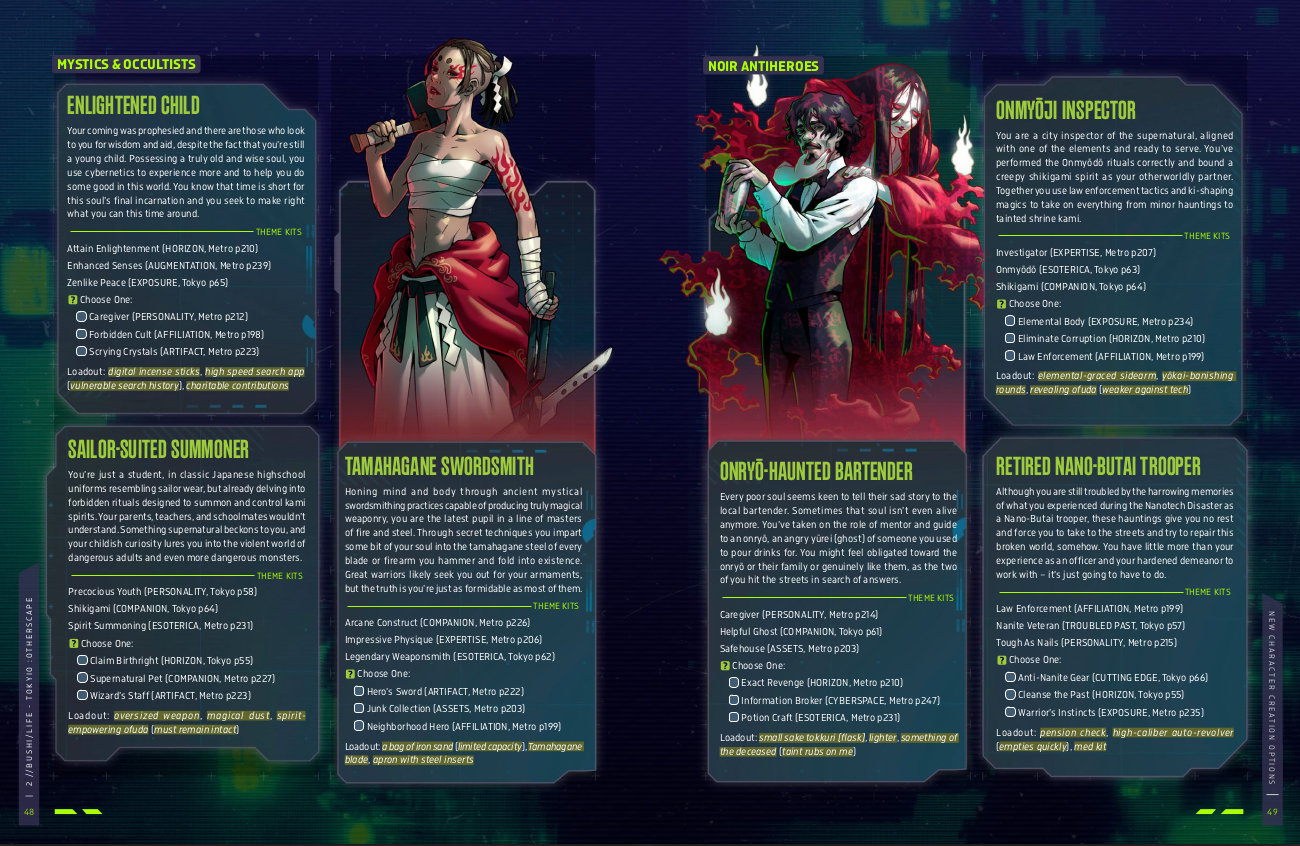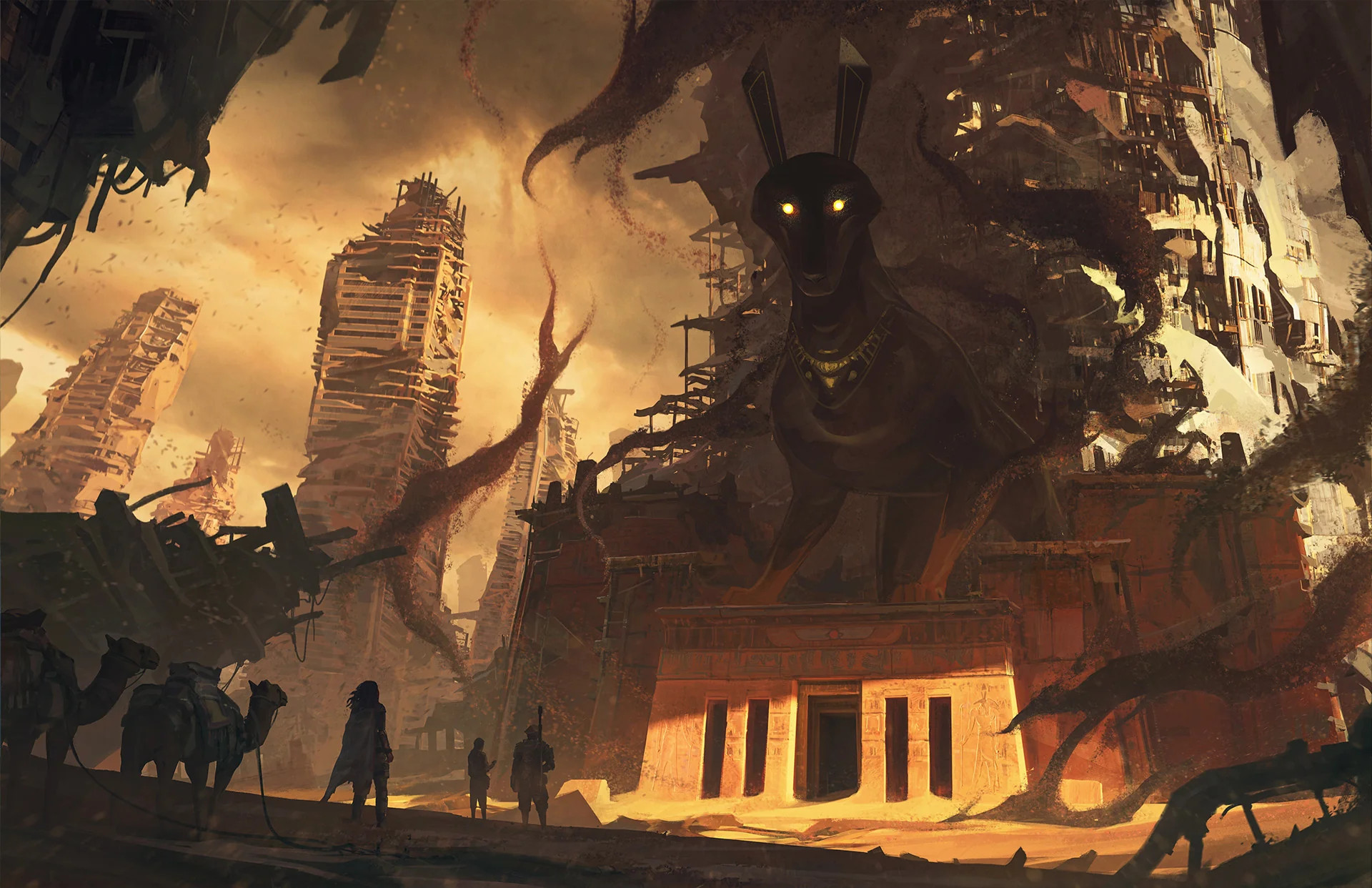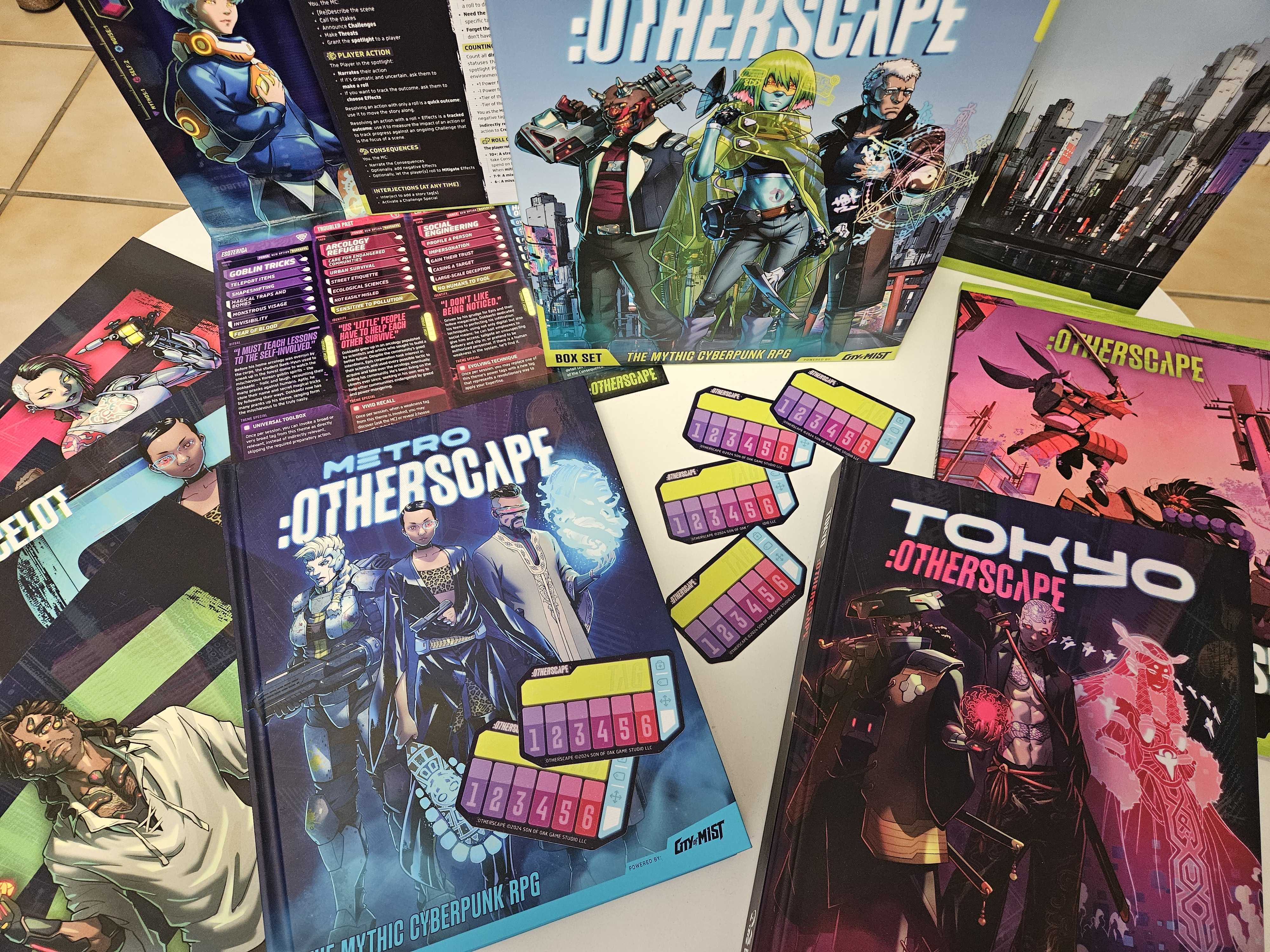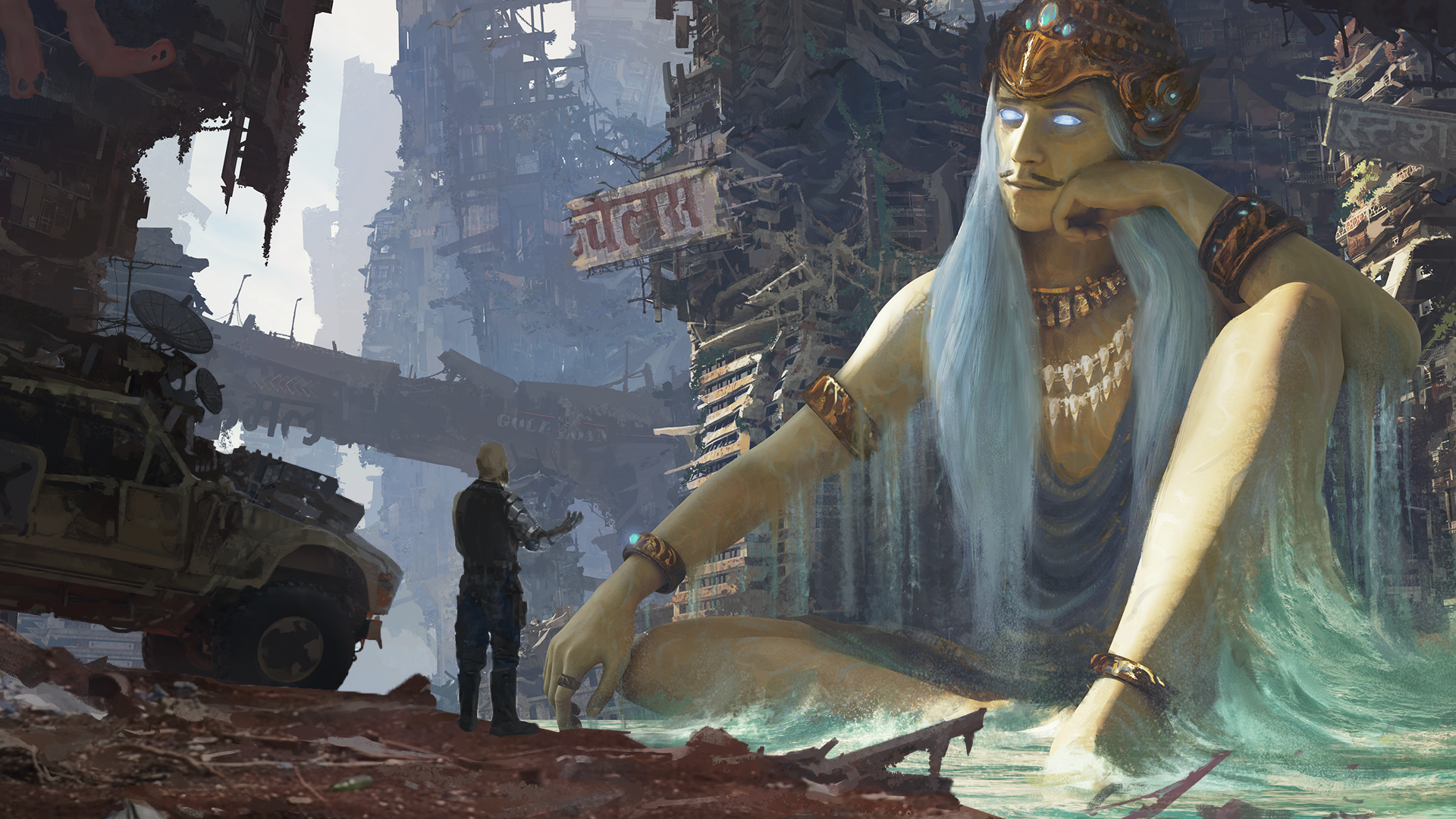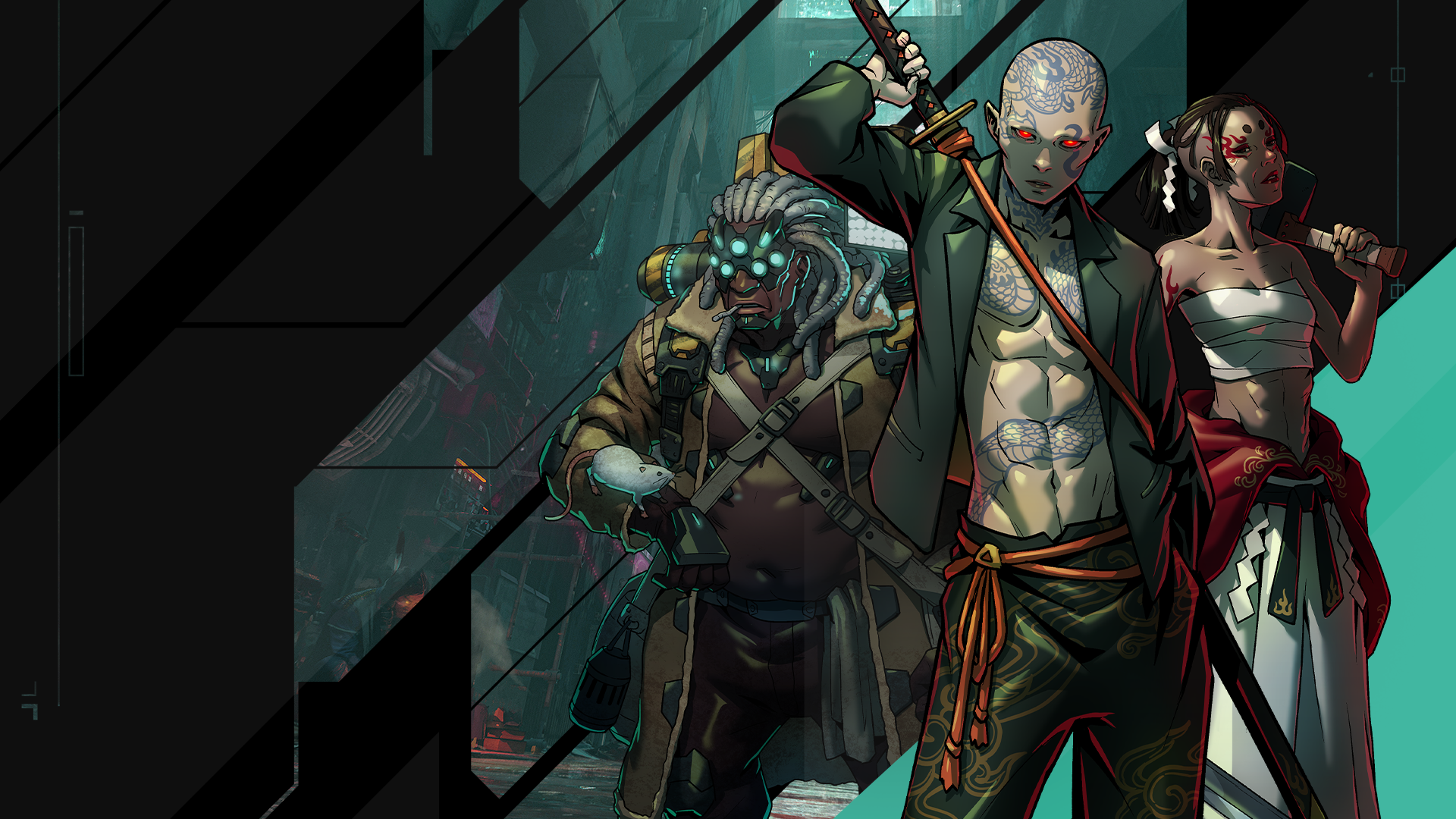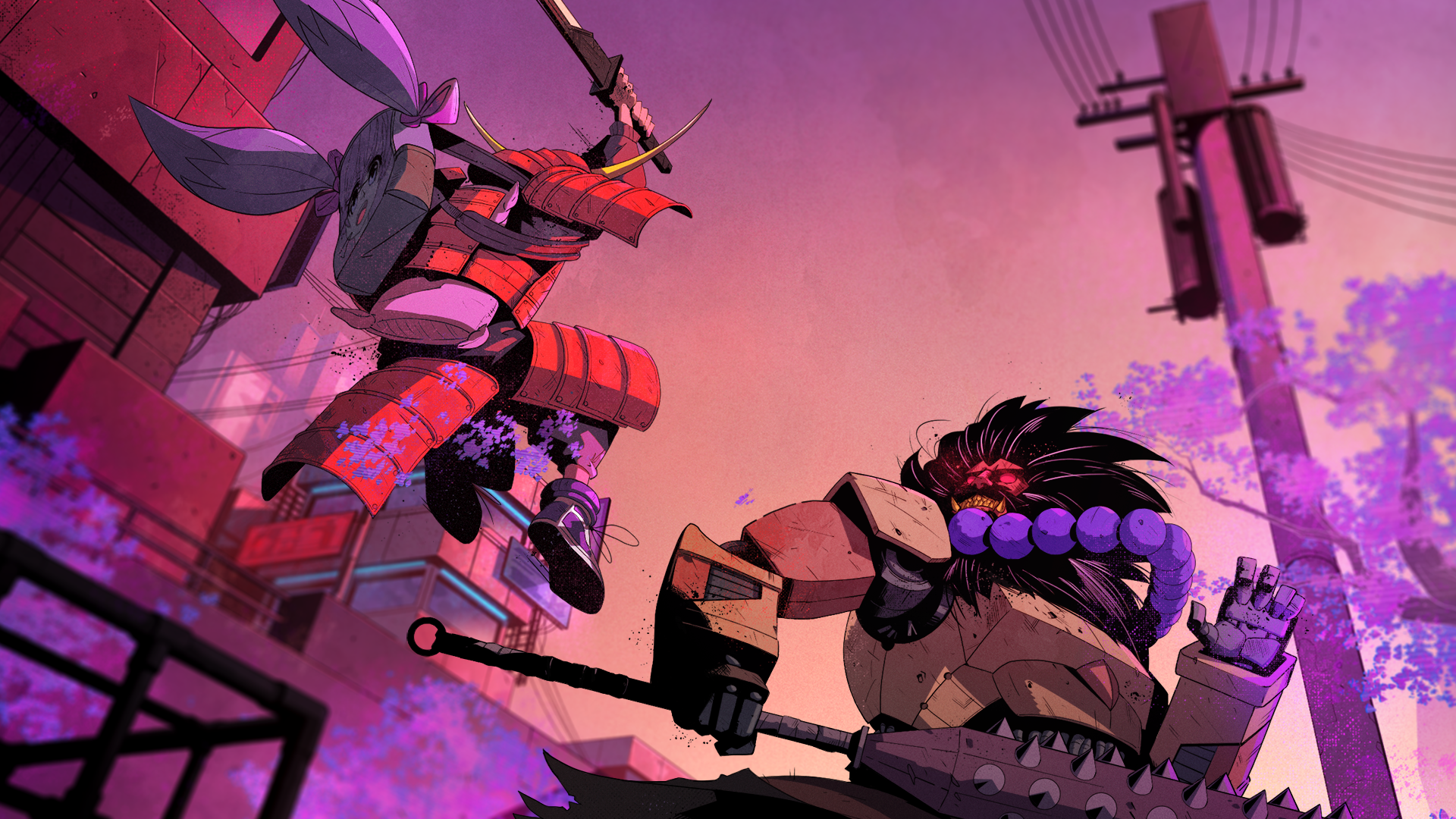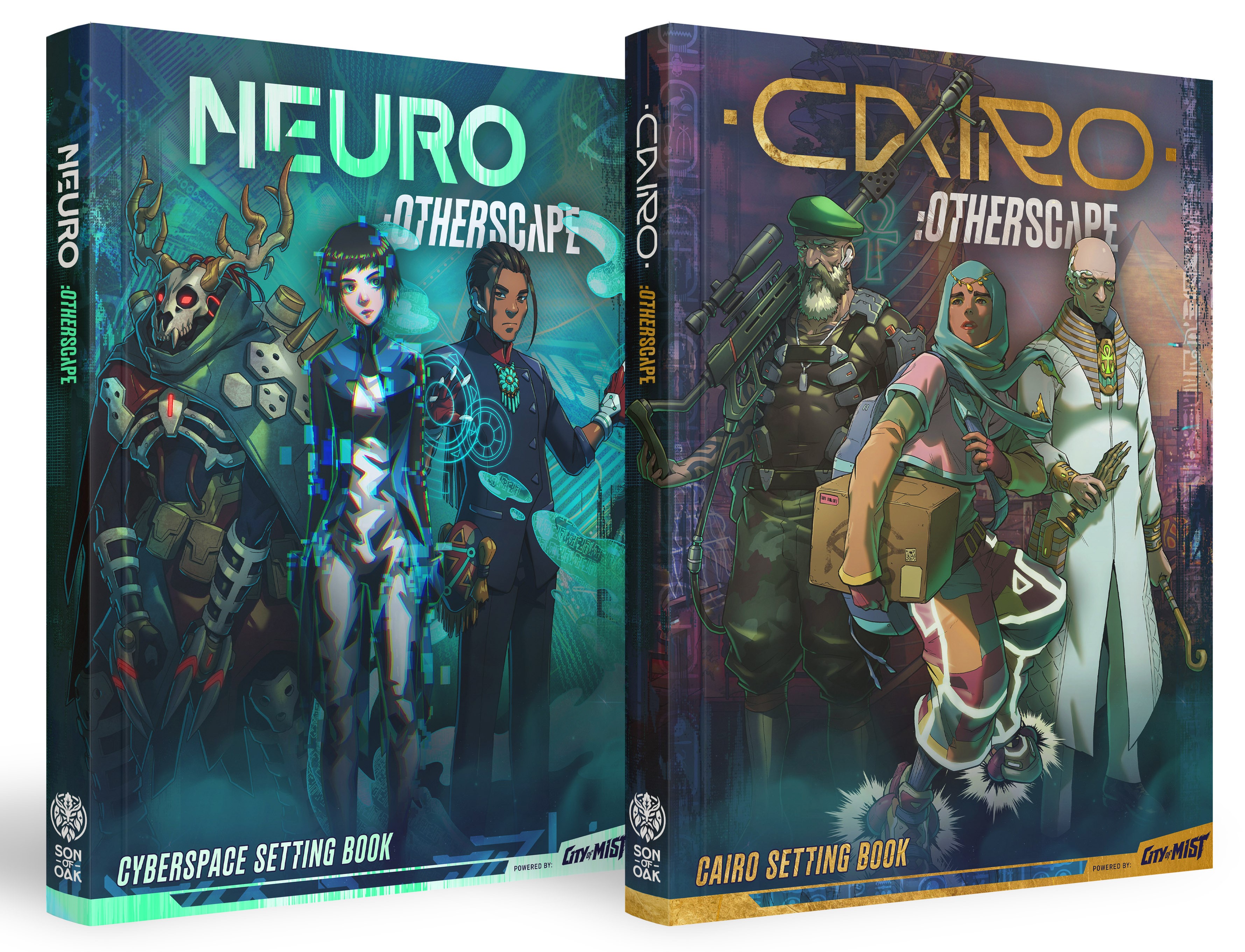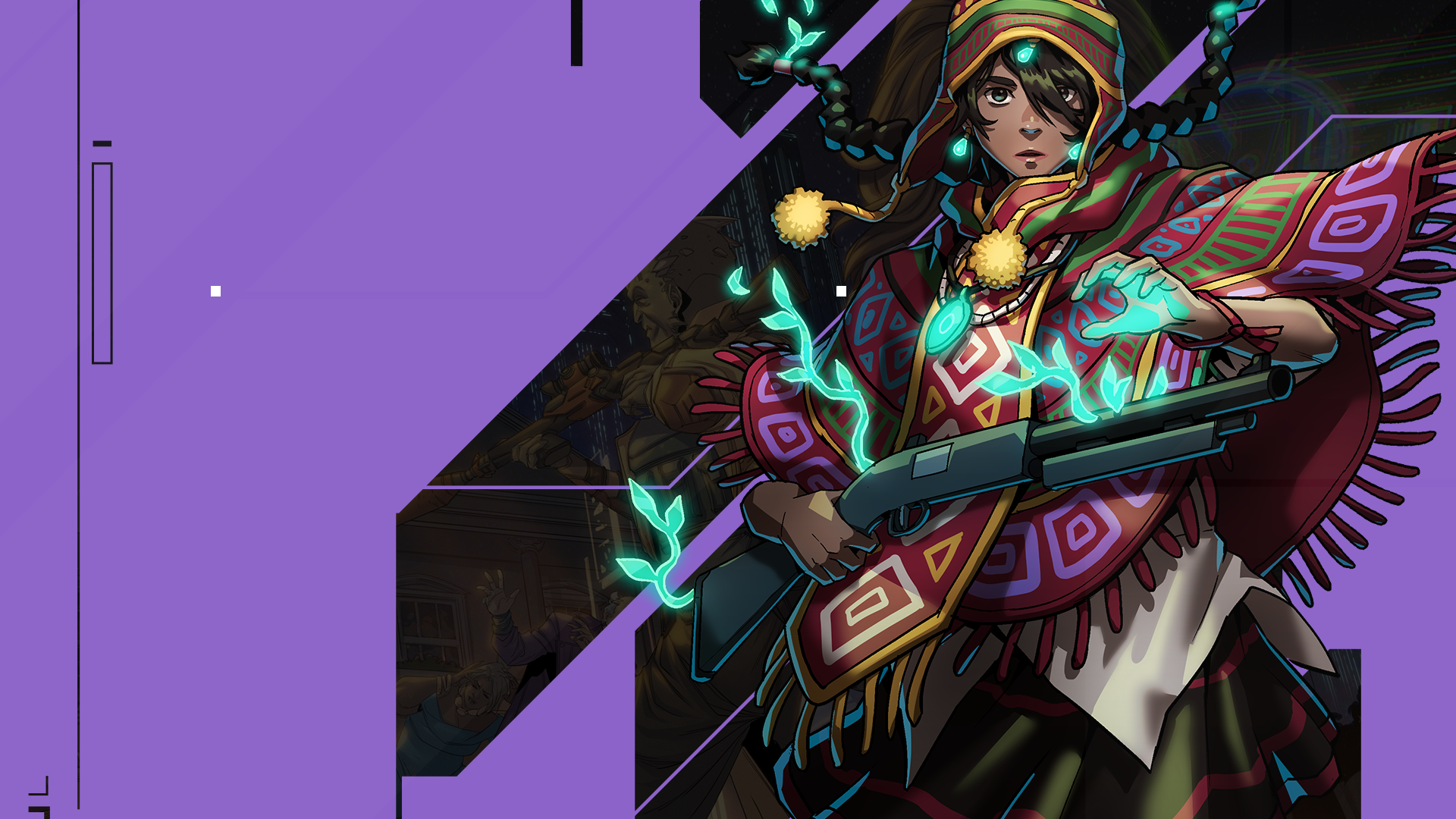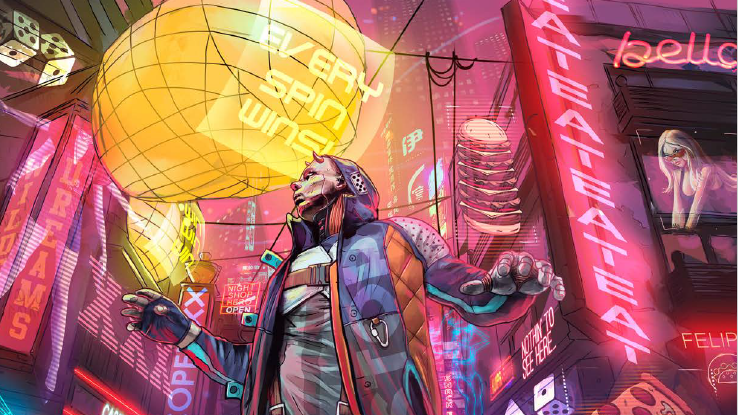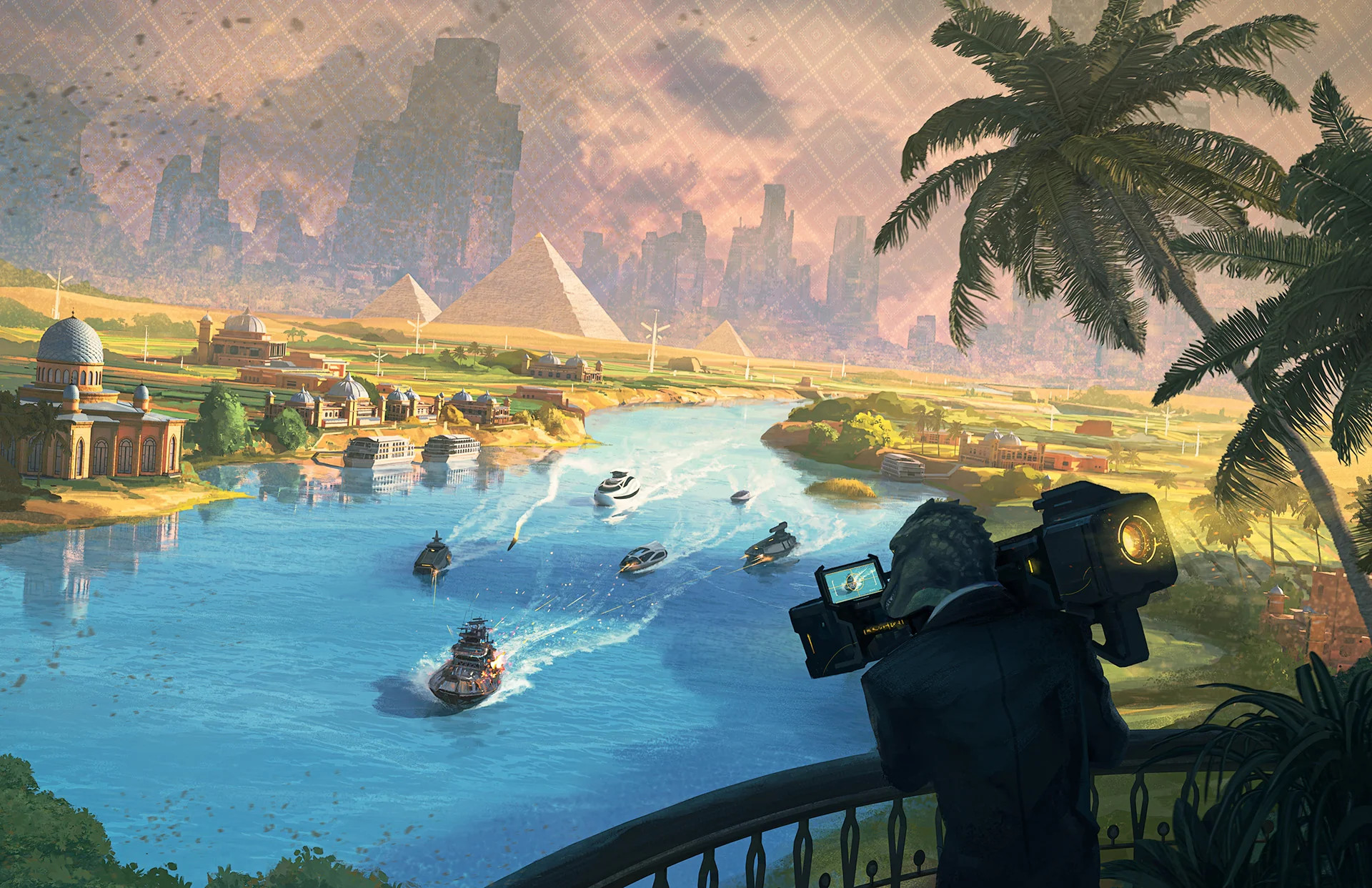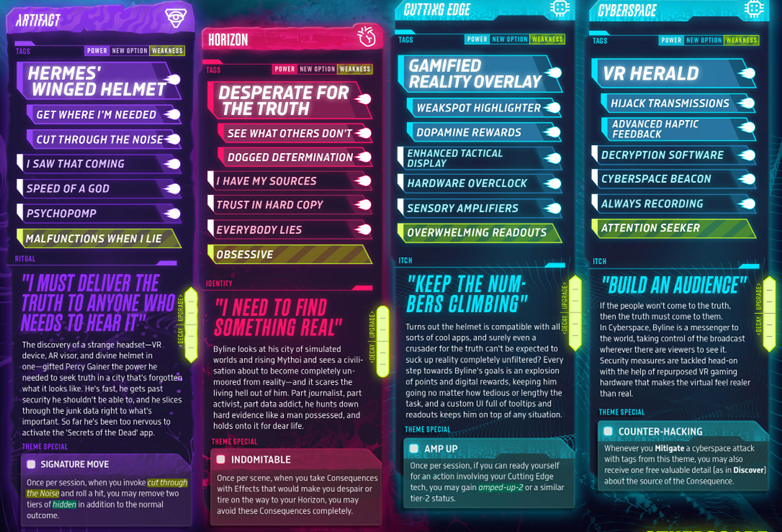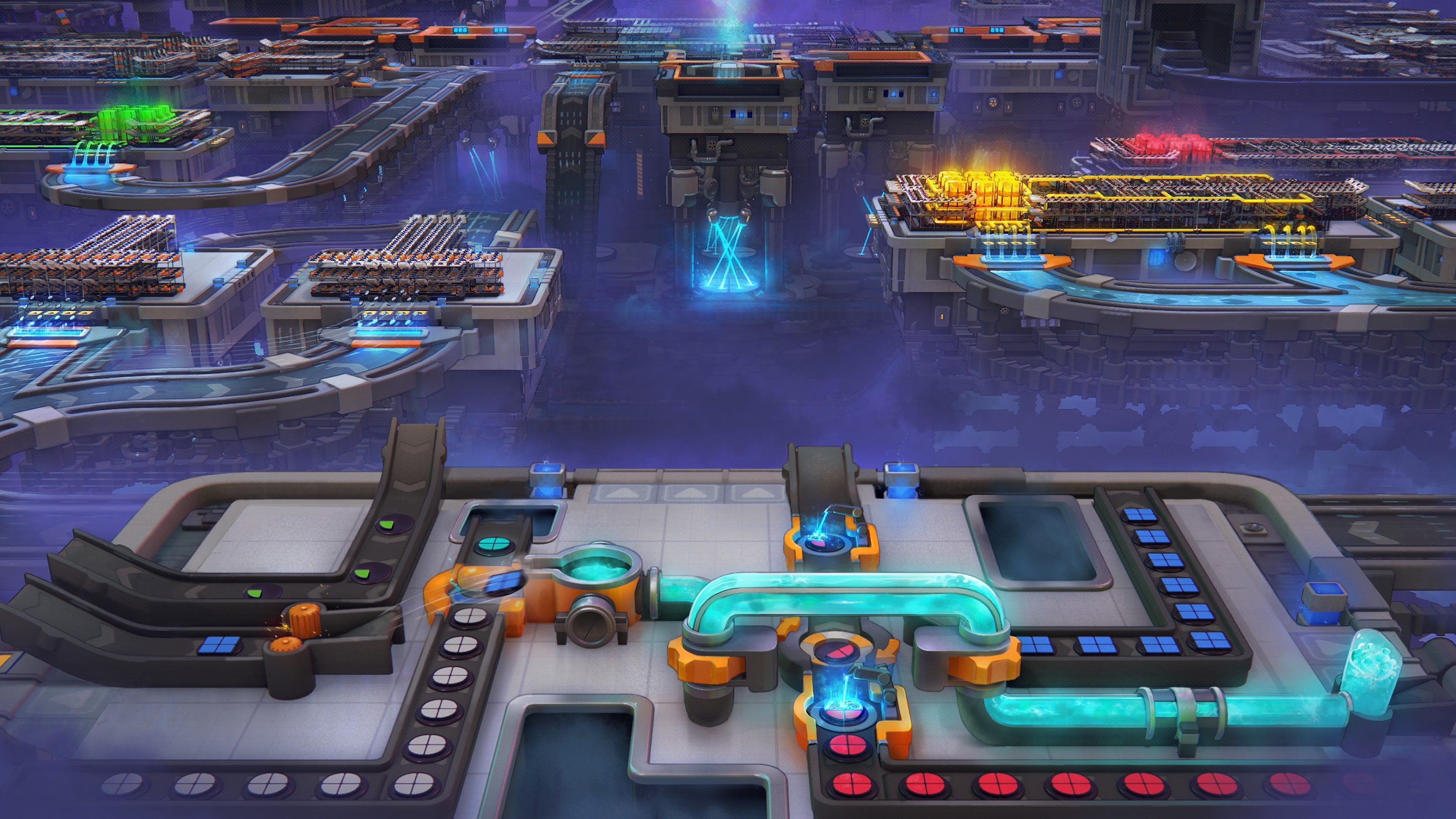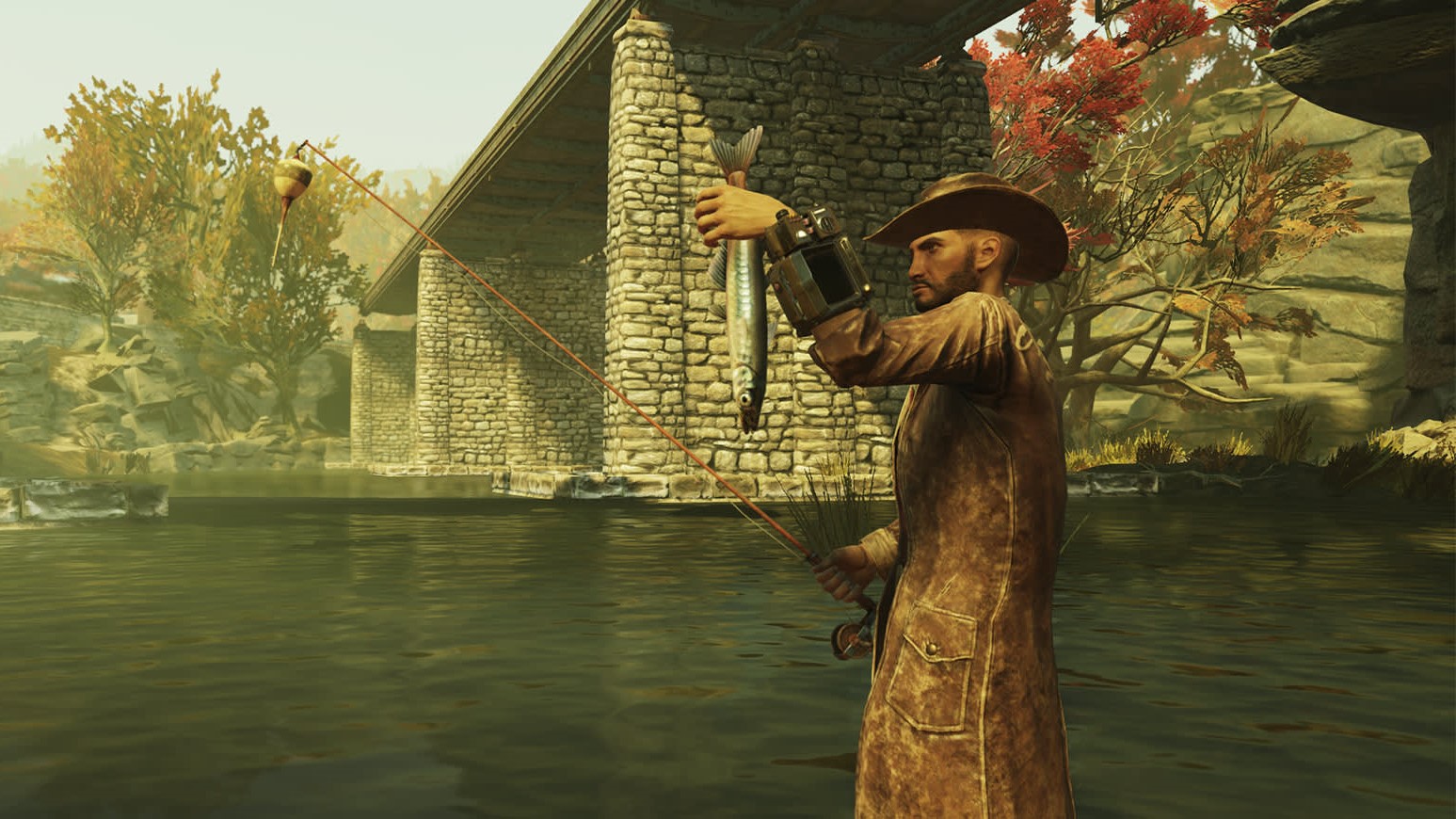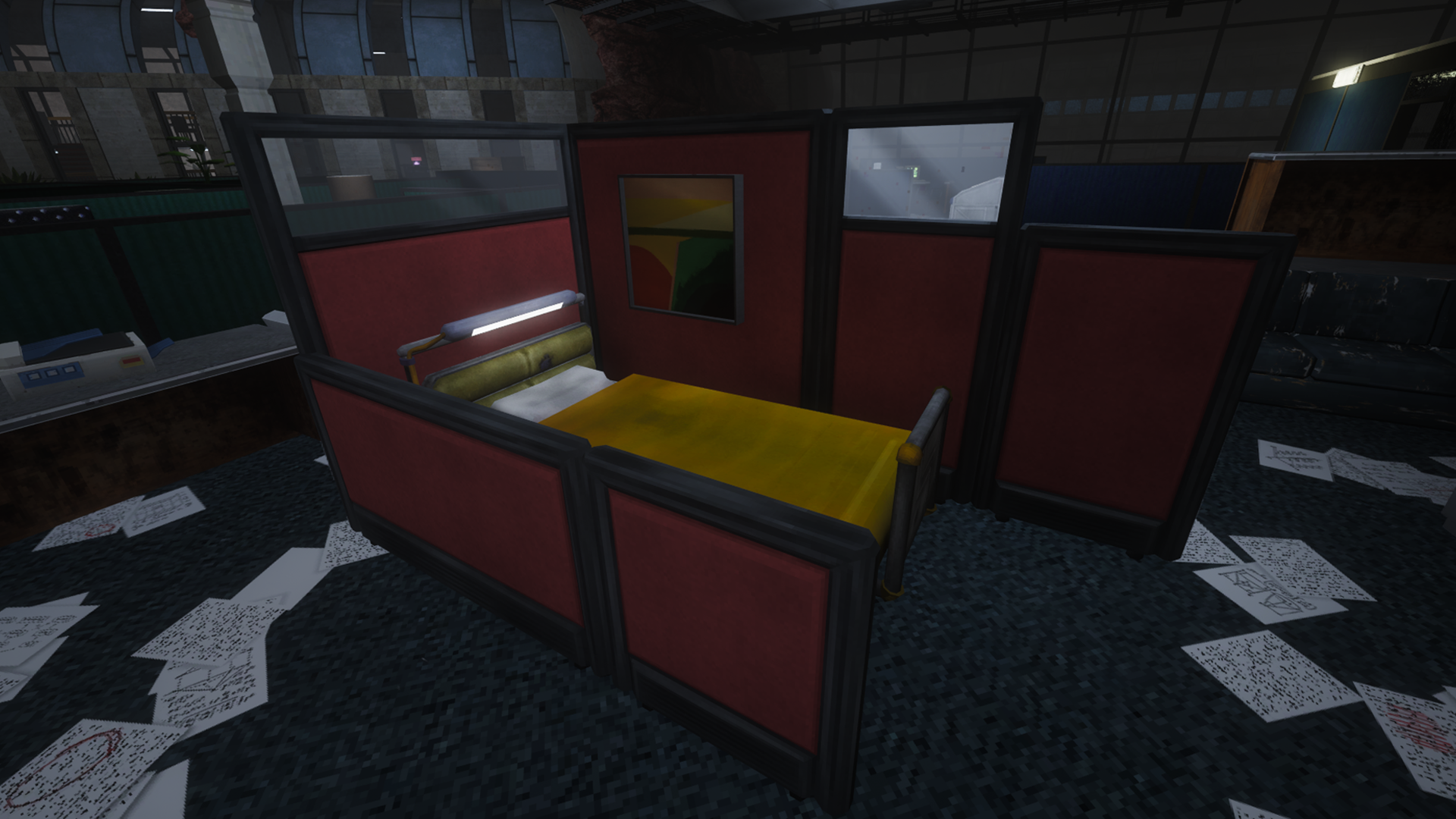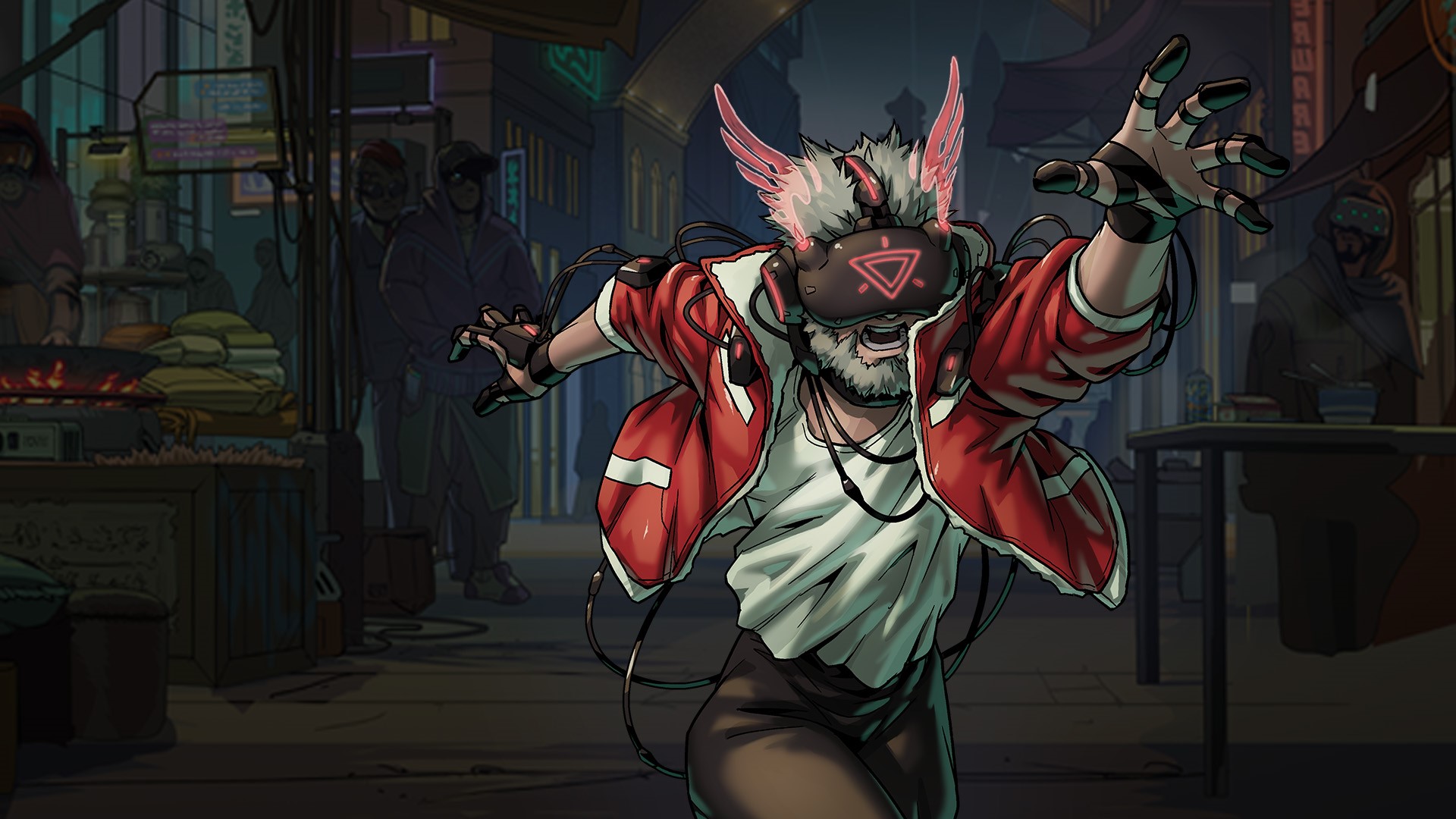
In :Otherscape, shiny new technology collides with ancient magic. But don't worry, we've made just the guy to sort it all out.
In the setting of tabletop RPG :Otherscape, sci-fi dystopia and mythology collide. Imagine a world like Cyberpunk 2077’s, but with old stories, gods, and monsters creeping in at the edges, offering strange powers. You might see a tooled-up mercenary wielding a reborn Excalibur, Japanese yokai haunting virtual reality, or a ruthless criminal gang taking over the streets with the help of Baba Yaga’s magic.
It’s a killer concept, and publisher Son of Oak has a great track record with its hugely successful noir superhero RPG City of Mist. I’ve been following its upcoming fantasy game Legend in the Mist with great interest, too.
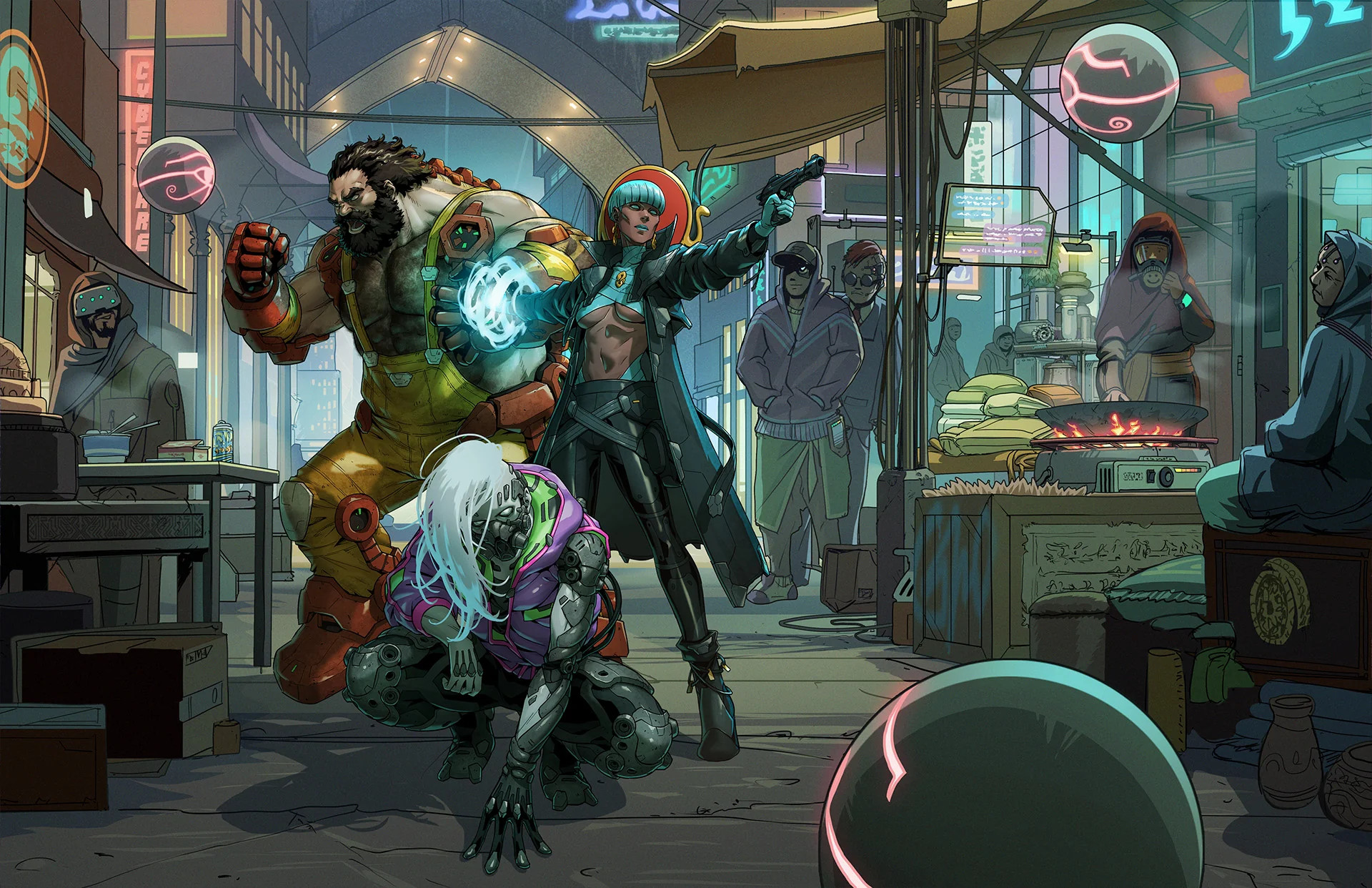
So with the Kickstarter campaign starting this week for :Otherscape’s new expansion, Cairo:Otherscape—offering a dive into a futuristic version of the city, where Ancient Egyptian myth and magic is reawakening—it seemed like the perfect time to get to know the game myself.
There’s few better ways of doing that, I think, than making a character in the system. So when Son of Oak founder Amit Moshe offered to guide me through the process personally, I couldn’t say no. The result is a new official pregenerated character for :Otherscape, that you can download and play yourself.
Let me take you through the process of how we built the character—and what makes :Otherscape a really interesting tabletop RPG to plug into.
Concept
Creating an :Otherscape character can take just a matter of minutes. Pre-made “tropes” let you pick a package of abilities like choosing a class in something like D&D, whether you want to be a High-Tech Shinobi, Sorcerous Gunslinger, or Noise-Terrorist Shaman.
But one of the great things about the system is that you can also go completely the other direction, creating a fully custom character exactly as you imagine them. To really dig into the system, I knew that was the direction I wanted to go.
So I needed to start with a concept. Forgive my ego, but I immediately thought about some form of futuristic journalist, perhaps pushing his stories out through cyberspace. But I wanted to lean into the mythology of the setting too. With the Egyptian gods already covered in the new book, I looked elsewhere—and figured, who could be a better ally in delivering your message to the people than Hermes, the herald of the Ancient Greek pantheon?
In :Otherscape, the Mythos—that is, the supernatural—is often found merged in some way with modern technology or ideas, as it tries to infiltrate mundane society. So what modern form could Hermes come in?
When I think of Hermes, I always think of his iconic winged helmet—so what if that was combined with a VR headset?
There we go—a cyberspace journalist with a mystical VR headset. A pretty basic sketch of a character at this stage, but that’s all we need to get started and move on to the next step.
Themes
Each character in :Otherscape is built from four themes, which each fall into one of three categories:
- Self: Themes which deal with your character’s humanity and identity.
- Mythos: Themes which relate to mythical powers, objects, or allies.
- Noise: Themes involving advanced technology your character can access.
What combination of these you choose immediately helps show what kind of character you’re making.
The important thing is, this isn’t about optimising a build.
“Do you want to be a character that combines all three elements? Or do you want to be a cyborg, just combining human and technology?” says Moshe. “Or what we call the transhuman, which is purely Mythos and tech? How do you envision the character?”
The important thing is, this isn’t about optimising a build—whatever combination you choose, you won’t be any less capable or able to engage with the game. “We’ve had characters start with all Self themes, just a normal person,” says Moshe. “And it’s just as powerful as all the other character types in the game.”
For this character, however, I knew I wanted a mix, and we already had some elements in place.
Hermes’ Winged Helmet was an easy fit for a Mythos theme. And if you’ll forgive me indulging in the classic journalist ideal, I decided his Self theme should be Desperate For the Truth, giving him a noble quest to root out the facts wherever they may be found.
But that headset definitely also called for some major technological influence, so I decided to go for two Noise themes. The first is VR Herald, covering the ways he pushes out his message through cyberspace. But VR isn’t just for business, it’s for other pursuits too, so I give him a Gamified Reality Overlay for the second. Chasing the truth is its own reward, but what if you could also watch numbers going up in the corner of your vision while you were doing it?
This is about the point where the name “Percy Gainer” popped into my head and just wouldn’t go away. Too on-the-nose? Perhaps—but hey, cyberpunk’s never been about subtlety.
Tags
The meat of any :Otherscape character is their tags. When you make a roll to try and make something happen, you don’t add attribute numbers or skill values or anything like that—instead, you see what tags from your sheet could narratively apply to the situation, and those add directly to the power of your roll.
The names of each of your themes are themselves tags—so Percy could already invoke Desperate For the Truth when rolling to, say, overcome a firewall on a protected data server, or tail a person of interest to their secret rendezvous. But each theme also starts with a couple of tags within it that help flesh out specific abilities they might give you.
“You start the game with 12 tags total,” says Moshe. “That’s basically your utility in the game… What do you want to be good at?”
A chase is a fight. A dialogue is a fight, a magical ritual is a fight. So which fights do you want your character to be really good at?
Amit Moshe, Founder, Son of Oak
But we have to be careful—focusing too much on one thing could make us a one-trick pony.
“Sometimes people go super specialized, like, out of 12 tags, they will take six or seven that are for shooting or attacking,” says Moshe. “And then you become really bad at everything else. So you can shoot really well, but as soon as we go into negotiations, as soon as we go into stealth, as soon as we get into magic, you’re basically dead meat.”
The key is that all different kinds of conflicts in :Otherscape follow the same core set of rules—a tense negotiation carries just as much weight as a gunfight, and if you’re not prepared, can leave you with just as many lasting consequences.
“A chase is a fight. A dialogue is a fight, a magical ritual is a fight,” says Moshe. “So which fights do you want your character to be really good at?”
My first draft of Percy fell right into the trap Moshe described. His hyper-focus on discovering information made him too one-note—I needed to diversify a bit.
Take Desperate For the Truth, for example. An easy first tag was See What Others Don’t, letting him spot the hidden clues and conspiracies. But if I made that second tag something like “Expert Researcher” or “Fact Hunter”, even though it would fit narratively, it’s too much overlap. Instead, I went for Dogged Determination—that reflects his drive to find the truth, but could also be used in all sorts of situations that See What Others Don’t couldn’t, like powering through on no sleep, wearing down an interviewee, or taking a beating.
The result is a brilliantly creative exercise for players.
You want tags to be clear and fairly specific (“Good at Everything” would not be a good tag, for example), but within those constraints, you really can make them anything you like.
Combine that with :Otherscape’s really broad and permissive world—not only could basically any technology or body modification you can think of exist, but you’ve also got the supernatural to take things in even more directions—and the result is a brilliantly creative exercise for players who want to take that step. And if that seems intimidating or too time-consuming, you can just pick up a pregen or a trope package, maybe tweak them a bit to your preferences, and get going immediately instead.
Ultimately I went for a mix of fairly straightforward tags—such as a Weakspot Highlighter for Percy’s Gamified Reality Overlay, like a real-world VATS from Fallout—and ones that are a little more abstract that I could get creative with in play—like Get Where I’m Needed for Hermes’ Winged Helmet, which could be used in all sorts of ways to help with almost any obstacle, as long as the destination is truly where he needs to be.
Weaknesses and motivations
Themes aren’t purely about power—they have their downsides and restrictions too.
To start with, each one has a weakness. These are like anti-tags—they describe something bad or unreliable about that theme, and when they apply to a roll, they make you less likely to succeed. But using them is also how you work towards upgrading a theme, so even though they can make your life more difficult, you want them to be a part of the game. Making them really unlikely to come up or easy to avoid is only shooting yourself in the foot long-term. Being prone to shooting yourself in the foot might be a good weakness, actually…
For Hermes’ Winged Helmet, I wanted a weakness that felt like a mystical oath. Malfunctions When I Lie sets the stage for some consequences if this dedicated truth-teller strays from his divine mission. For Gamified Reality Overlay, though, something more directly related to using the technology made sense—Overwhelming Readouts reflects how disorienting being bombarded with so much data can be, and might start to hit Percy hard in situations where too many variables are popping up at once.
It gives the game’s tech an inherently insidious quality that makes it feel oddly alive.
Each theme also needs a “motivation”, and these are different for each type. They’re statements that reflect how you interact with that theme, and if you want to hold onto that theme, you need to act in harmony with them. If you instead deny them or act against them, that theme starts to “decay”, until it disappears entirely to be replaced with a brand new theme—perfect for if you feel they’ve changed and evolved into something new during their adventures.
For Self themes, the motivation is an Identity—a defining element of your character’s personality. For Desperate For the Truth, that was easy—“I Need To Find Something Real” reflects his goal, and if he stops living by that statement, he’ll certainly be letting that part of himself go.
Mythos themes instead have a Ritual—something you have to do to hold onto your connection with them, such as regularly returning to a place of power or pursuing a divine mission. That was easy for Hermes’ Winged Helmet—“I Must Deliver the Truth to Anyone Who Needs To Hear It” pushes Percy to take on that role as a mystic messenger if he wants to keep the helmet’s powers.
But my favourite are Itches, the motivations of Noise themes. These ask “What is it your tech makes you want to do?”, as Moshe puts it—which couldn’t feel more relevant a question for all of us in 2025… It gives the game’s tech an inherently insidious quality that makes it feel oddly alive, like it’s always tugging at you to do more of the thing it makes you good at. So, of course, Percy’s Gamified Reality Overlay has the Itch “Keep the Numbers Climbing”—you’d probably lose track of this man for a week if he ever discovered Cookie Clicker.
Final touches
There are also unlockable tags for each theme to earn as you play, building out the character.
Finally, there are just a few last bits to sort out. For one, you have to pick some gear—tags you can swap in and out for each mission, representing your weapons and gadgets. And of course you need a name. Now, while Percy had stuck as my character’s civilian name, it’s not exactly a cool cyberpunk code name for when he’s out on missions. In the end, I thought Byline was a fitting moniker—one last indulgence for the journalist in me.
And because Byline is available as a pregenerated character for you to play yourself in :Otherscape, I went a little further—the sheet also includes handy extras such as example actions he might want to do and which tags apply to them, whether you’re trying to Hack a Broadcast or just Work All Night. There are also unlockable tags for each theme to earn as you play, building out the character—and a special move you can get for each too.
What I can’t take credit for is the gorgeous visuals of the sheet—Son of Oak very kindly handled all that, and worked with Isago Fukuda of Isa Artworks who created that excellent portrait inspired by PC Gamer’s own signature colours. Bit more stylish than my usual scrappy character sheet written out in illegible handwriting.
Even if you’re not jumping into a campaign just yet, it’s well worth taking a look—each :Otherscape pregen also includes a streamlined version of the core rules, so just by reading half a page you can get a great sense of how the game plays.
If that’s piqued your interest in :Otherscape, take a look at the new Kickstarter, which is crowdfunding right now, or Son of Oak’s info page for the game. You can also try it for free with the Kickstarter’s new demo kit. Just promise me you’ll bring Byline along with you on your next mission, yeah?
